Entropic Affirmation
Entropic Affirmation
On the Origins of Conflict in Change, Death, and Otherness
Apple Zefelius Igrek
LEXINGTON BOOKS
Lanham Boulder New York London
Published by Lexington Books
An imprint of The Rowman & Littlefield Publishing Group, Inc.
4501 Forbes Boulevard, Suite 200, Lanham, Maryland 20706
www.rowman.com
Unit A, Whitacre Mews, 26-34 Stannary Street, London SE11 4AB
Copyright 2018 by The Rowman & Littlefield Publishing Group, Inc.
All rights reserved . No part of this book may be reproduced in any form or by any electronic or mechanical means, including information storage and retrieval systems, without written permission from the publisher, except by a reviewer who may quote passages in a review.
British Library Cataloguing in Publication Information Available
Library of Congress Cataloging-in-Publication Data Available
LCCN 2018945969 | ISBN 9781498567992 (hardback : alk. paper) |
ISBN 9781498568005 (electronic)
 The paper used in this publication meets the minimum requirements of American National Standard for Information SciencesPermanence of Paper for Printed Library Materials, ANSI/NISO Z39.48-1992.
The paper used in this publication meets the minimum requirements of American National Standard for Information SciencesPermanence of Paper for Printed Library Materials, ANSI/NISO Z39.48-1992.
Printed in the United States of America
In Memory of Mariah Harvey, She Brought Joy to the World
Contents
The reason for writing this book is to develop a new methodological approach to radical, infinite otherness. This new approach is necessary precisely because the traditional approaches are flawed in ways that cannot be rectified on their own. One such approach, familiar to anyone who has read Levinas, Derrida, or Irigrary, is to argue that greater openness and receptivity to infinite otherness is crucial to both ethics and politics. According to this line of thought, as we shall see in the ensuing chapters, it is precisely this receptivity which helps to mitigate and prevent the injustices that arise when we dissociate ourselves from the strange, inhuman, and incommensurable. But we shall also see that this influential approach is vulnerable to the critique that our relationship to what is infinite (or inhuman, incommensurable, etc.) cannot be measured in terms of greater or lesser openness; by definition whatever is infinite exceeds all such measurements equally. It is therefore inferred, in reference to a second traditional approach, that whatever is excessive in this way has no bearing on questions of justice or injustice. If all social values are equally exposed to what is infinite then there is no use in trying to distinguish them on this basis. And a third approach simply rejects the reality of infinite otherness altogether. If there is no validity to such a philosophical construct, then once again it will be inferred that it is both irrelevant and useless. But if it can be proven that what is infinite is both real and relevant, while nevertheless acknowledging that all of our social values are equally receptive to it, then it is incumbent upon us to elaborate what this means and how it is possible. What needs elaboration, then, is a methodological approach emphasizing the relevance of alterity and otherness to our social values without that relevance having anything to do with greater or lesser openness. This book therefore attempts to do just that by developing an alternative to the traditional methodological options.
The first chapter introduces the reader to the method that will guide the entire trajectory of this workand that method is thanato-vitalism. As the name suggests, the method emphasizes the intimate connection between life and death insofar as the affirmation of one always includes the other. As will become clear throughout the following pages, the idea of the infinite which will serve as the basis of thanato-vitalism is most directly related to change and death. In this way, I am very much influenced by the likes of Heraclitus and Nietzsche in defending the view that nothing can be separated from the vicissitudes of boundless, primordial, incessant change. The method of thanato-vitalism is therefore distinguished from the second and third approaches to infinite otherness in its claim that the orientation of social values is indeed influenced by the fact that whatever we affirm necessarily includes such infinite aspects of change and death. The second chapter highlights the heart of this method which is the concept of entropic affirmation. This is the concept that proves to us that the infinity of change and death is affirmed to the same degree in all social values, no matter what those values happen to be. Of course it may be debated whether or not there is indeed something infinite which is affirmed in all of our values to the same degree, and so I elaborate what I take to be the best arguments on behalf of this view. Assuming that these arguments are plausible, the third chapter explores the first consequence for social and cultural values that are said to be influenced by entropic affirmation. This first consequence is that we should no longer assert causal connections, no matter how rigid or loose, between the disavowal of otherness and the greater likelihood of catastrophe. All too often it is claimed (in the works of Baudrillard, iek, Butler, and so forth) that the disavowal of what is irreducible lends itself to war, violence, and catastrophe; but if the irreducible does in fact include an infinite dimension, as entropic affirmation suggests, then there are no greater or lesser modes of disavowal which could be distinguished as the basis of either peace or catastrophic violence. Any catastrophic trajectory relying on such logic must therefore be rejected.
While the third chapter explores a negative consequence of the present methodology (i.e., an observation that is critical of competing theories), the fourth begins to focus more explicitly on the nature of social values and social life as understood in the context of entropic affirmation. As already put forth, it is the view of this author that the unlimited aspect of change is affirmed in all social valuesand to the same degree.is an important debate to pursue further, as I write in chapter five that one of the primary inferences to be drawn from values that are both creative and destructive is that by their very nature they do not seek out complete integration with all other cultural and political modes of life. The debate, then, has to do with the proper analysis of the origins of conflict, and I contend that these origins have much more to do with the inherent ambivalence of these values rather than some kind of mythical construction which only ever emphasizes what is positive and life-enhancing. Between chapters four and five there is an interlude providing the reader with an application of the more ambivalent valueswhat I refer to as expansive singularitiesto a variety of films exploring love, death, and the simulacrum. Although the interlude does not introduce a new concept to the main trajectory of thanato-vitalism, which is in fact why it is set aside as an interlude, it is nevertheless helpful in elucidating how the arguments of this trajectory can be applied to complex ethical and political issues raised by truly provocative films.
The sixth chapter continues to explore issues of change, death, and self-identity in relation to processes of sublimation. Although it is always preferable to pursue sublimation whenever it reduces the possibility of unnecessary conflicts, it is impossible to eradicate the consequences of our ambivalent values. Insofar as they embody entropic affirmation, which entails that they affirm their own singularity (i.e., a form of existence that ultimately disappears from this world), they will always introduce some form of division and antagonism into the larger social field. The seventh chapter fills out this logic in greater detail, proceeding step by step from concepts of time and teleology to entropic refraction and agonistic pathos. The conclusion of this argument is that while expansive singularities do seek out harmonious relationships with the world in which they exist, there must be some limit to this tendency if they likewise embrace the very antithesis of such expansivenessthat is, their own singularity. This particular chapter shifts in style compared to previous chapters in order to single out each of the conceptual steps that lead to this final conclusion. I would expect this to be helpful at some point in the book insofar as the overall methodological approach that has been developed here is irreducible to others which are more familiar to the reader. This also serves as my justification for adding a final chapter composed of questions and objections. Again, if I am right to think of the method contained within this book as irreducible to more traditional interpretations of otherness, then it is my responsibility to clarify as much as possible the sorts of questions that are likely to arise. While I cannot anticipate all such questions, it is my hope that in thinking through what I take to be the strongest possible objections I have made this theory of entropic affirmation more resilient, viable, and accurate.

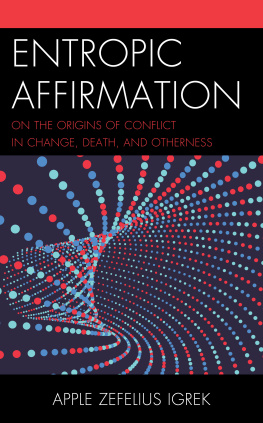

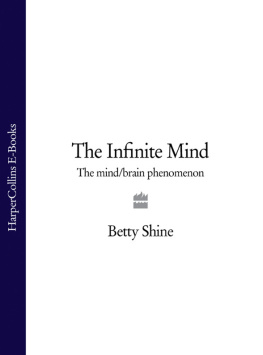

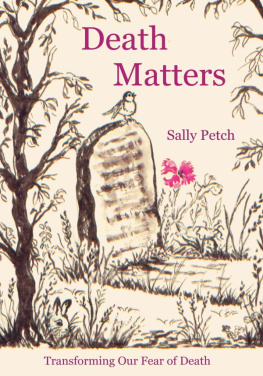

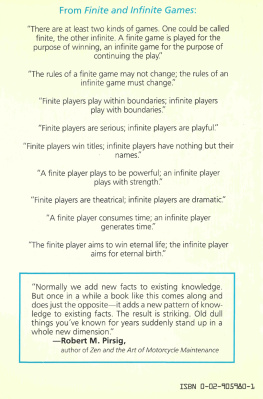
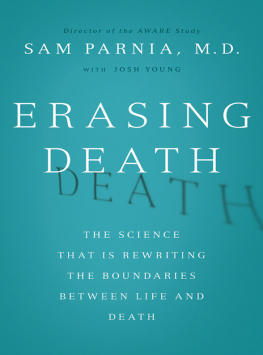

 The paper used in this publication meets the minimum requirements of American National Standard for Information SciencesPermanence of Paper for Printed Library Materials, ANSI/NISO Z39.48-1992.
The paper used in this publication meets the minimum requirements of American National Standard for Information SciencesPermanence of Paper for Printed Library Materials, ANSI/NISO Z39.48-1992.